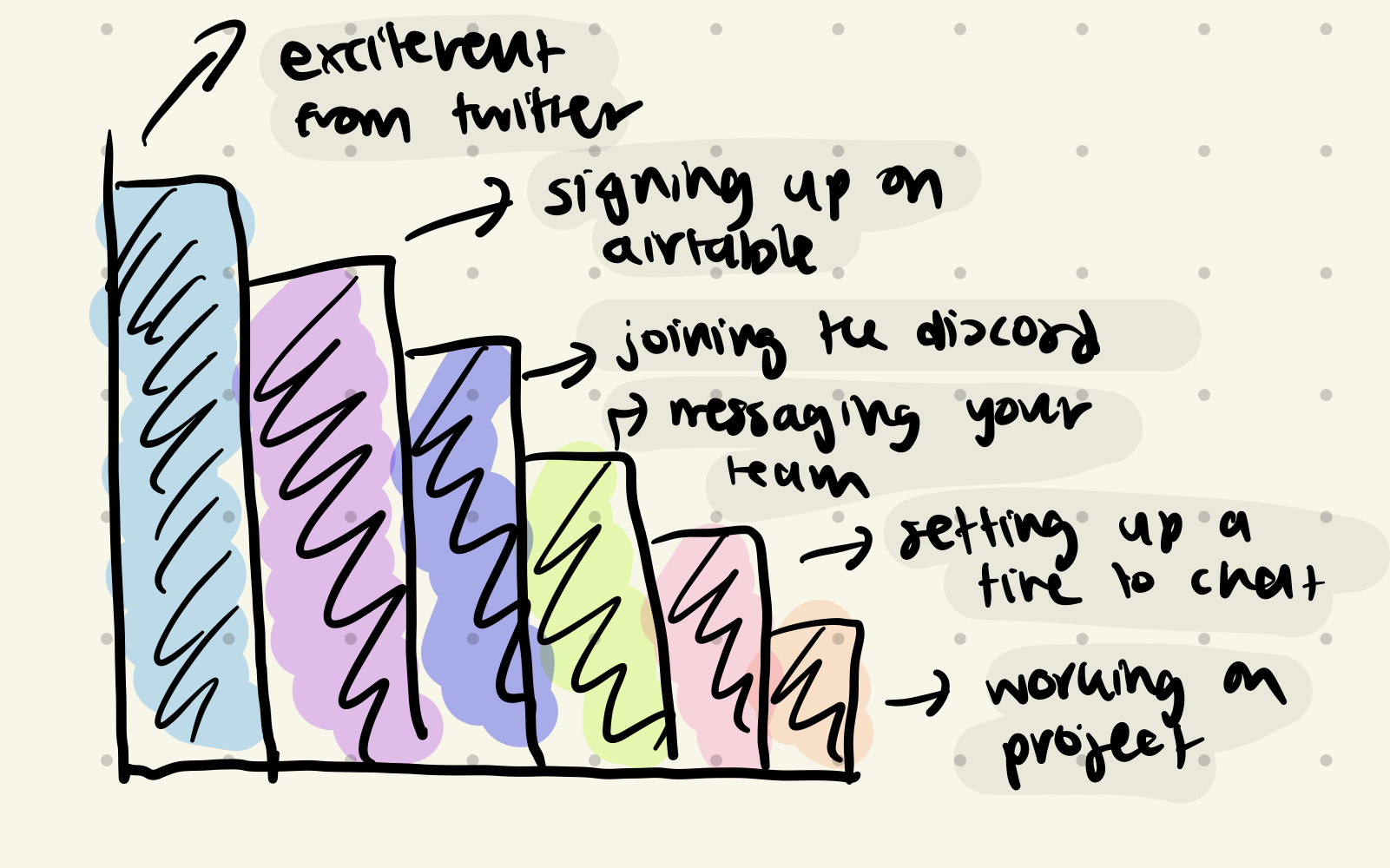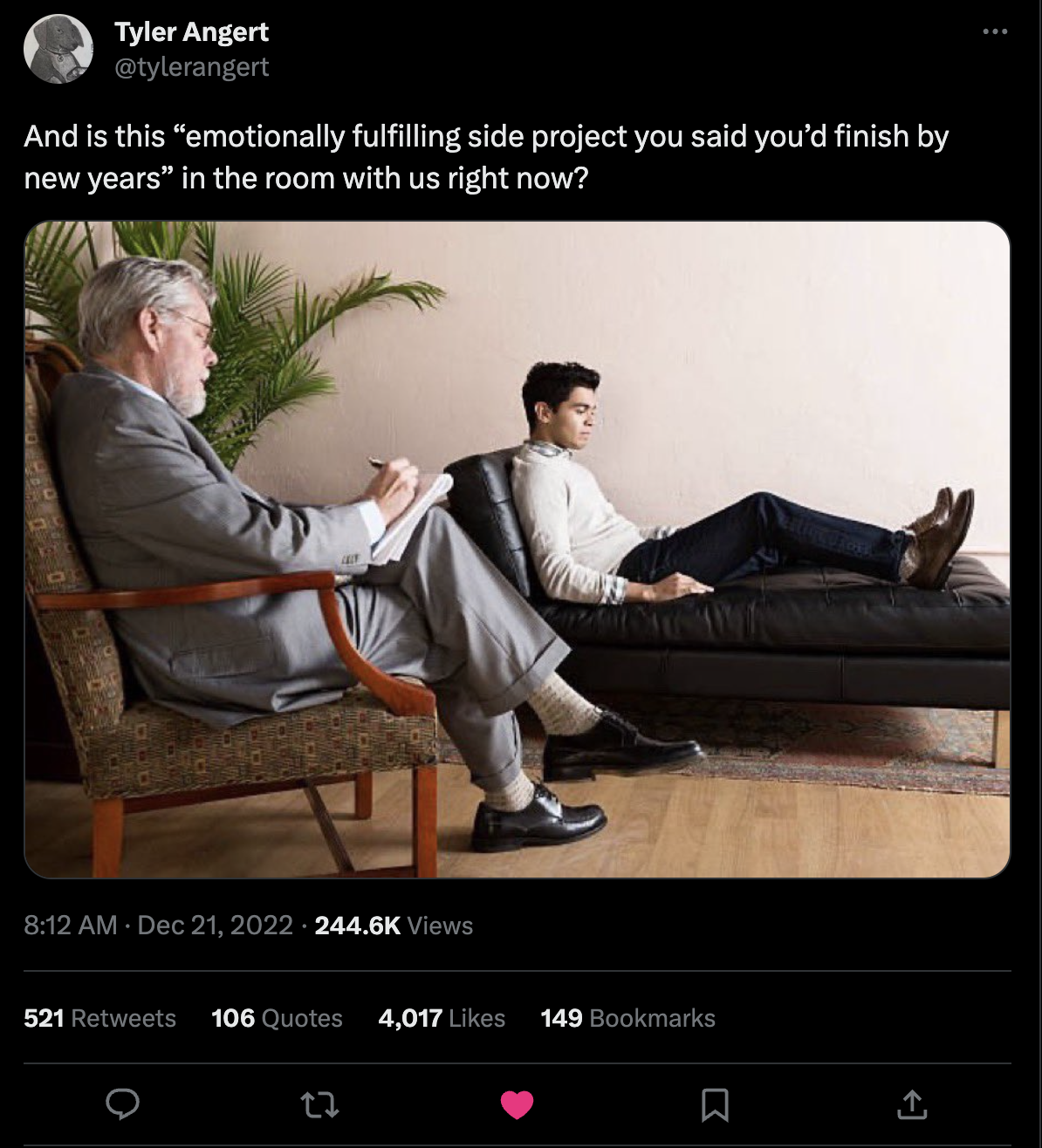2023-07-08
by: mathurah
matching 120 people based on their interests using sentence transformers
original blog post posted on https://www.irl.computer/alpha.html

how it all started - and why
About two weeks ago, we had this wild idea of connecting internet strangers who have similar interests to explore a space and co-create together. To our surprise, we got over 430 responses, and got 120+ people signed up to join our first run of the experiment.

The inspiration for this idea spun out of the pain point/hypothesis we had: independent research is hard, and much easier to break ground on new projects, explorations, with a group to be accountable for, and that people are looking to connect with others with similar interests.
Keshav and I also met in a similar way - it started off from a serendipitous call sparked from a twitter DM, where we talked about mutual interests and started talking about project ideas on a call. We wondered - how can we enable more internet friends to meet online and build fun projects together? To be honest, we didn’t expect there would be this much interest - which means there is something here. People want to meet others with similar interests, and they’re also looking for creative pursuits to create fun things together.
We originally wanted to build something small for a very curated cohort, but we also wanted to run this as a very bare bones experiment to learn what the pain points are and observe the interactions. We were curious to understand - ideal group sizes, the amount of support groups would need to bring their projects to fruition, and other pain points involved with running an experiment like this.
what we learned
discord is not a great platform to facilitate these conversations
There aren’t really a ton of platforms out there that work really well for large group communication. I’m almost a part of 100 discord servers and never really have notifications on myself - I think I only am actively checking one or two servers.
the cold hi
Something funny we noticed is that a lot of people when introduced to their groups, said hi, and nothing else. Without much context, it’s hard to build a conversation and form a connection from there. We had to do a bit of nudging, and the groups we nudged eventually were able to start a conversation and meet from there.
engagement happens in stages
Engagement happens in stages, and there’s an expected drop off at every point. We broke it down into 5 main stages:

- Inactive
- Level 1 Active: Introductions
- Level 2 Active: Started to chat with each other
- Level 3 Active: They’ve already met
- Level 4 Active: Started working on project/exploring ideas
- Level 5 Active: Project Complete
Naturally, there’s a friction at every step. Activation energy and excitement is high at the beginning, and slowly drops off as tasks start to get more difficult. Especially with different timezones involved, another pain point was coordinating a common time for everyone to meet.
excitement is high in the beginning, then reality starts to slowly set in - it’s human nature
Humans tend to overestimate in the beginning - we say yes in the beginning because something sounds exciting, but in reality, actually building a project to execution is hard. We noticed a lot of groups met in the beginning, but didn’t end up completing their projects because work, school, and personal life got in the way. And it’s understandable. Taking on more projects on top of your regular day job is a lot.
 tweet from tyler
tweet from tyler
We've all been there. We didn’t have high expectations for this round, because even if some people made a new friend (and a lot of people did!) - that was a win in our books, and it could eventually lead to something else down the line which is the most serendipitous part of it all.
it’s hard to set timelines for pure exploration and research
Through running this experiment, we wanted to learn what the ideal timeline would be to run a cohort. Is it 1 or 2 weeks? 4 months? We realized there’s not really one right answer. Research and exploration is ambiguous, and hard to rush. However, it is helpful to scope down research and help break things into milestones so it’s much more manageable, and have more artifacts to look to as examples of things people can create.
it’s better to be niche, and focused
Through running this experiment at scale, we realized how important it was to narrow the scope of internet research labs into an area that’s much more focused and niche, and do it well. That way, we can go all in on supporting this research area (and pursue these explorations ourselves as well!) and bring a community together of people interested in these sorts of tools.
agentic creation
We stumbled upon an interesting learning - in conversations, people really enjoy talking about projects and explorations they’re currently working on. We’re actually finding a lot of value through individual creation first. We’re curious for a future iteration, instead of matching groups together, we can have a collaborative approach where all participants work on individual projects, but still have a supportive community on their exploration journey alongside them.
what we're doing next
This concludes the end of phase 0 of this internet stranger matching extravaganza. We’re going to archive the team channels in the next few days - so if you haven’t already connected with some of the people you’ve met outside of discord, please send them a DM now before you lose the channel.
This was a ton of stuff to take in, and we’re so grateful you all embarked on this adventure with us. We’re going to pause this experiment for now and take at least a month to do a few things:
- figure out how we can solve these pain points and make it easier to facilitate internet research
we’re going to build and ship a few experiments ourselves, and treat internet research labs almost like a creative studio. From getting caught up with trying to organize the experience for everyone - we missed out on what we enjoy doing most - creating. We think we’ll also learn a lot through almost going through the experiment ourselves and develop artifacts we can build upon.
- If you’re curious about some of the initial research questions we’re exploring, some include: how can we map digital spaces on the internet to physical spaces IRL? What’s the history of computing interfaces, and what can the future look like?
- If you’re also adjacently interested in any of these topics, and are also still loosely interested in continuing to explore - please do let us know! We can set up a smaller informal group chat with a few people and see how we can showcase and support your work in our first studio drop.
- we’ve also slightly rebranded a bit 👀 - check us out on our new website irl.computer and @internetrsrch
if this resonates, please consider sharing it with a friend and subscribe to my newsletter below to get updates on when my next post drops 💖
subscribers also get tidbits of life updates from me from every piece!